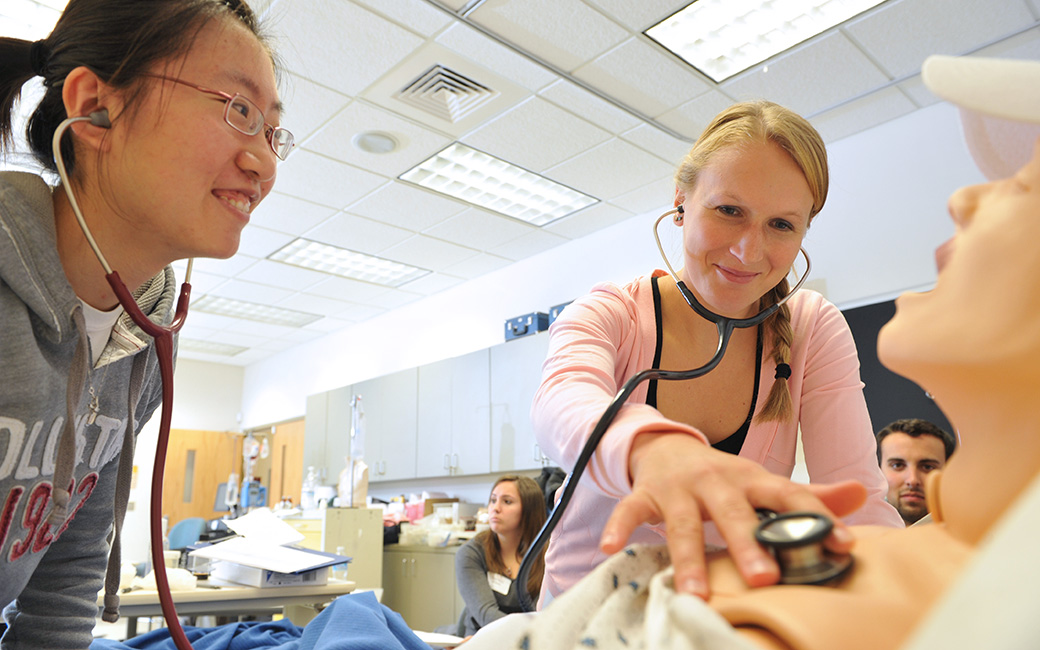Simulation
Graduate students will participate in simulation experiences throughout the program to supplement their traditional clinical education at health care facilities and community organizations.

Learning through Simulation
Nursing students in the entry-level Master of Science (ELMS) program will have the opportunity to develop and strengthen their clinical skills in the Nursing Department’s state-of-the-art Simulation Learning Center. Beginning in their first term, students will participate in a variety of clinical simulation scenarios. There are many components of simulation education that help to bolster a student's learning in the nursing program.
Standardized Clinical Education
Simulation scenarios allow students to transfer knowledge learned in the classroom into action and gain experience caring for patients with a wide range of illnesses. Simulation-based education also ensures a a standardized clinical education for all students.
Debriefing
Debriefing is a critical component of simulation that ensures reflective practice. The state-of-the-art video recording technology sets TU nursing programs apart from many other programs. Each simulation scenario is recorded, allowing the students and instructor to review or reflect upon the scenario and discuss various aspects of clinical practices. The video recordings are archived and available to students and faculty at any time for additional review.
Competence and Confidence Building
By participating in clinical simulation scenarios, students develop and strengthen their professional practices. Students will also encounter patient care situations they would never face in classroom study. Exposure to and familiarity with numerous patient care situations prepares students to quickly and professionally manage the many challenges they will face in their nursing career.
Simulation Center
The Department of Nursing has multiple simulation environments designed to reflect a variety of health care settings and provide students with a breadth of experience. Clinical simulation learning is designed to further prepare students for their professional practice role in increasingly complex health care settings.
Simulation Labs
The Towson Nursing Simulation Center is comprised of labs and control rooms which span over 4,600 square feet and represent a range of health care environments from hospital to home setting. Simulation labs will be incorporated into various classes throughout the graduate program.
Health Assessment Lab
- incorporated into health assessment course
- 10-bed suite
- includes medical office exam tables
- practice assessment skills learned in classroom
Foundations Lab
- incorporated into fundamentals course
- designed to mirror real life nursing situations
- controlled environment fosters critical thinking, creative problem solving
Simulation Labs
- six simulation labs with control rooms
- simulation manikins controlled by instructor
- five hospital-style rooms (three medical-surgical, one pediatric and one maternity)
- one “living room” style lab for community-based care and mental health care
- incorporated into clinical courses
- students complete clinical scenarios in small teams